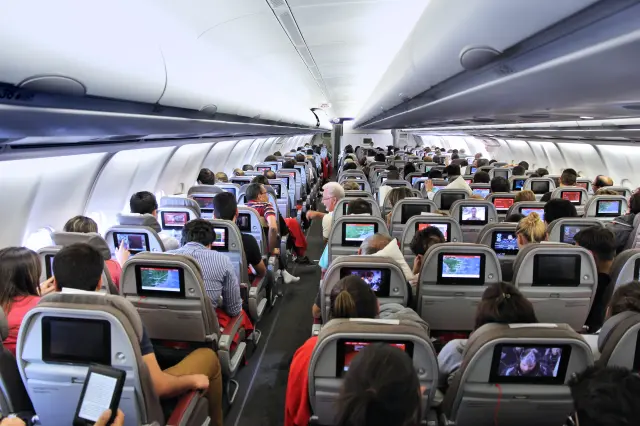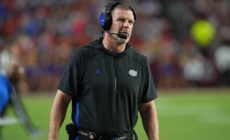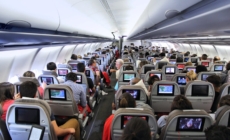-
Healthcare workers strike at Kaiser Permanente ends after 5 days - 5 mins ago
-
Panthers’ Bryce Young Exits Game With Worrisome Ankle Injury - 36 mins ago
-
U.S. Kills 3 on Boat Suspected of Smuggling Drugs for Colombian Rebels - 45 mins ago
-
College Football Program Fires Coach After 12-Point Loss - about 1 hour ago
-
A Fragile Cease-fire Between Afghanistan and Pakistan Ends Violence, for Now - about 1 hour ago
-
Dodgers’ Mookie Betts Sends Message to Brewers After NLCS - 2 hours ago
-
Epoch Times Reporter Resigns After Publication Signs Pentagon Rules - 2 hours ago
-
Florida Fires Billy Napier After Two-Point Win - 2 hours ago
-
Defense Secretary Hegseth defends latest boat strike off Venezuela - 3 hours ago
-
Trump Is Dragging Us Down to His Level - 3 hours ago
Six major US travel rules that have changed in 2025, explained
From policy reversals to fee introductions and digital transformations at borders, 2025 has seen significant changes in travel rules that affect millions of passengers globally. Here, experts unpack some of the biggest updates so far this year.
Travel Rules Changes for 2025:
No Mandatory Cash Compensation for Delays
A key proposal that would have required airlines to provide mandatory cash compensation to passengers for controllable delays was scrapped in September.
“I think one of the biggest changes was in September, the Trump administration dropped a Biden-era plan that would have required airlines to provide cash compensation for significant flight delays,” travel expert Bobby Laurie, a former flight attendant and in-flight policy and procedure analyst, told Newsweek. “As a result, there is no federal rule mandating that airlines pay passengers for delays caused by issues within the carrier’s control.”
According to the Office of Information and Regulatory Affairs, the Department of Transportation (DOT) previously issued an “Advanced Notice of Proposed Rulemaking (ANPRM) that examined requiring U.S. and foreign air carriers to adopt and adhere to customer service plans identifying essential services,” such as meals, rebooking, hotel stays, transportation to or from the hotel, timely customer service, as well as “compensation which airlines would be required to provide to mitigate passenger inconveniences” when a flight cancellation or delay was “due to circumstances within the airline’s control.”
However, the office noted that “consistent with Department and administration priorities, the Department plans to withdraw the ANPRM.”

Each airline sets its own compensation policies. According to the website of the DOT, which was last updated on September 11, “If an airline has made a commitment to provide a particular service or compensation, then the Department can hold the airline accountable.”
The DOT guidance advises that “controllable delays” include those due to maintenance, crew issues, fueling, or baggage loading. Passengers are advised to check with their carrier during delays, as amenities such as meals or hotel stays vary by airline.
American Airlines Removes Bag Sizers at Boarding Gates
Another notable change came from American Airlines, which removed its gate-area bag sizers in October, a decision made to streamline boarding processes. According to an internal memo reported by the aviation website View From the Wing, gate agents are now instructed to “use their judgement” and “err on the side of the customer” when determining if a bag needs to be checked.
While the move doesn’t change actual baggage size limits, it alters enforcement. “The bag sizer isn’t a ‘rule change’ per se,” Laurie told Newsweek. “The bag sizes are still in force, but the agents can now eyeball it and also take the passengers’ word for it.”
Southwest Airlines Ends ‘Bags Fly Free’ Policy
Perhaps one of the most dramatic shifts in airline policy this year came from Southwest Airlines. Known for its “Bags Fly Free” mantra, the airline eliminated free checked bags for most travelers on flights booked from May 28 onward.
“One of the biggest shakeups in the travel industry this year comes from Southwest Airlines,” Sarah Silbert from Points Path, a flight search browser extension tool, told Newsweek. “The airline ended that longstanding perk…and has now joined the ranks of other major U.S. airlines by introducing hefty checked bag fees.”
Sarah Pardi, a travel expert at the global insurance firm Insurte, told Newsweek: “Checking a bag can be expensive, so it was definitely a selling point for customers looking for a great deal.”
Travelers with a Southwest credit card or A-List status can still check one bag for free.
Spirit Airlines Offers Two Free Checked Bags—to Some
While other carriers tighten baggage perks, Spirit Airlines has taken a different approach. As of 2025, the ultra-low-cost carrier now allows co-branded credit card holders to check two bags for free—provided the booking is made directly through the airline.
Pardi said: “The Free Spirit Travel More Mastercard, which is co-branded with Bank of America, will allow Spirit Airlines travelers a two-bag allowance each when tickets are booked directly through Spirit with the credit card.”
Southwest To Introduce Assigned Seating
While not yet active, another big shift is on the horizon for Southwest Airlines. As of January 27, 2026, the airline will transition from its open seating model to an assigned seating system.
“One of the more quirky experiences when flying Southwest is that seats are not assigned,” Pardi told Newsweek. “Starting January 27 of 2026, this is changing…fare choices will include Standard, Preferred, and Extra Legroom.”
Southwest’s website confirms the change, promising “seat options that allow you to choose the experience you prefer,” and highlighting upgrades as part of its broader rebrand, including new cabin designs and loyalty perks.
Digital Entry Replaces Passport Stamps
A major change across the pond will affect American travelers looking to collect passport stamps while trekking around Europe. As of October 12, the European Union began rolling out its Entry/Exit System (EES), phasing out physical passport stamps in favor of biometric data collection at border checkpoints.
“The new Entry/Exit System (EES) started to be operational on 12 October 2025,” according to the European Commission’s official travel website. The system captures fingerprints and facial images, and will be gradually deployed across the Schengen Area, with full implementation expected by April 10, 2026.
Do you have a travel-related story to share? Let us know via life@newsweek.com and your story could be featured on Newsweek.
Source link


















